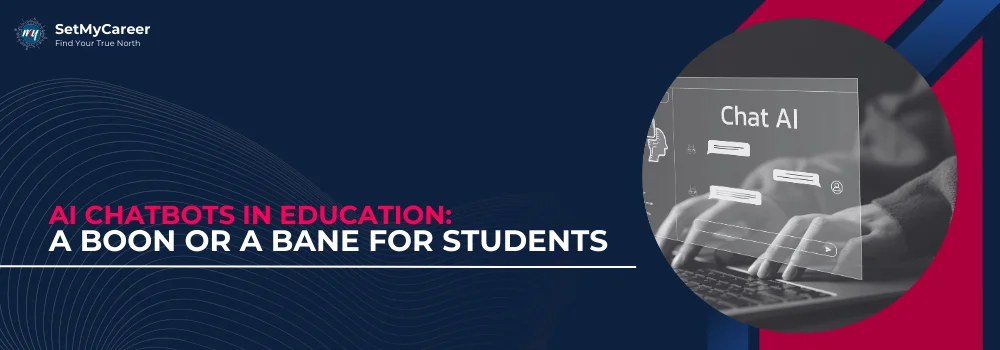Published by Jyothi Patil on 20 November 2024
Content Strategist | Editorial Team Member
Jyothi Patil is a skilled writer with a strong background in English literature, which she applies to crafting engaging content across various platforms. From writing blogs for her website and guest posts to creating pieces on Medium and Substack, Jyothi excels in making complex ideas easy to understand.
Are AI chatbots transforming education into a smarter future or complicating learning for students?

Imagine having a personal tutor at your fingertips, ready to assist 24/7 with any question, explain tricky topics, and even help with assignments. It might sound like something out of the future, but this is exactly what AI chatbots promise to bring to the classroom. While they offer personalized and accessible learning, there’s a catch. Will these bots help students grow or hinder their critical thinking and academic integrity? Let’s explore the potential benefits and challenges of AI chatbots in education and determine whether they are a boon or a bane for students.
The advantages of AI chatbots for students are vast, offering enhanced learning opportunities and greater accessibility:
24/7 Accessibility: Students no longer need to wait for office hours or scheduled tutoring sessions. Chatbots like Duolingo's AI Tutor provide instant assistance anytime.
Personalized Learning: Chatbots analyze a student’s learning pattern and adapt content accordingly.
Improved Engagement: Interactive bots make learning more engaging by breaking down dry lectures into bite-sized, interactive conversations. This is particularly effective for younger learners.
Bridging Language Gaps: Tools like ChatGPT and Grammarly help non-native speakers improve their grammar and communication skills, ensuring inclusivity in education.
Despite their benefits, AI chatbots come with their set of challenges:
Dependency Over Independence: Relying too much on chatbots can limit students’ ability to think critically and solve problems on their own, as they may depend on AI for answers instead of figuring things out themselves.
Accuracy Concerns: Chatbots aren’t perfect and can sometimes give incorrect or misleading information, which could confuse students.
Privacy and Data Security: The information shared with chatbots might raise privacy issues, especially if it isn’t properly protected.
Academic Dishonesty: Since chatbots can write essays and solve problems, some students may misuse them to avoid learning and complete assignments without putting in the effort.

Here’s what you need to know about AI in education
Find out howThe solution lies in integrating AI chatbots with traditional education methods. Here's how:
AI chatbots can help manage routine queries, giving teachers more time to focus on personalized instruction and student engagement.
Institutions should provide clear guidelines to ensure students use chatbots as learning aids rather than shortcuts for assignments.
Assignments should emphasize creativity and problem-solving to encourage skills that chatbots cannot replicate, fostering independent thought.
Continuous feedback from students and teachers ensures chatbots remain effective and aligned with educational goals.
AI chatbots in education offer both exciting opportunities and potential challenges. While they can enhance learning by providing personalized support, they must be used responsibly alongside traditional teaching methods to truly benefit students. If you're looking to make the most of AI in education or need guidance on adapting to this new landscape, career counselling for students can help you make informed decisions that align with your academic and career goals. Connect with our experts at SetMyCareer today and get the support you need to thrive in your educational journey!
No. 14/595, 1st Floor, Nanjappa Reddy Layout, Koramangala 8th Block, Bangalore 560095